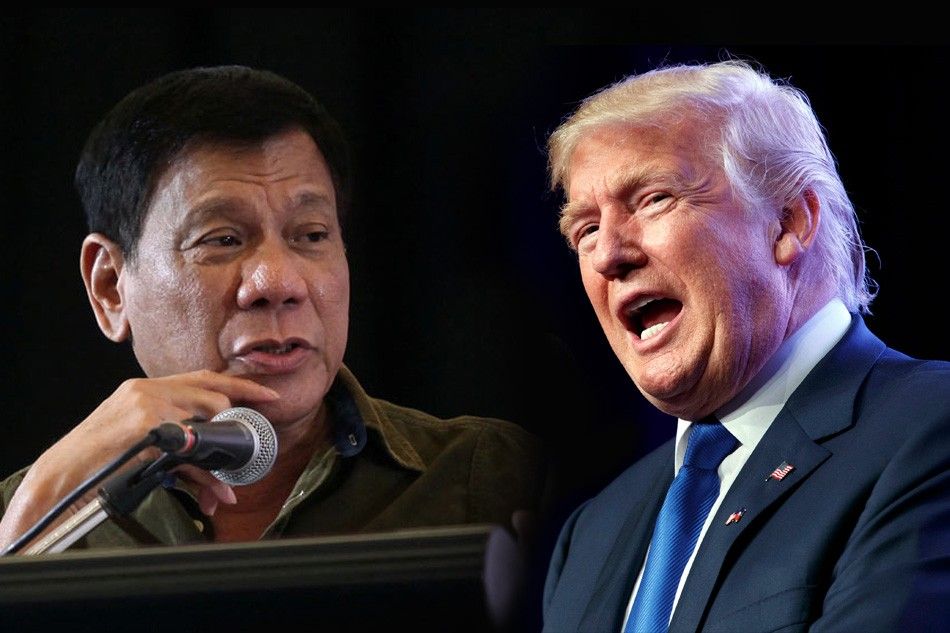Explainer: American protectionism a bad sign for the Philippines

President Rodrigo Duterte’s reorientation towards Asia might have been more prophetic than we first thought. During the campaign, Donald Trump made a number of controversial remarks, riding on the growing wave of protectionist sentiment in the United States and around the world. He capitalized on the rising discontentment among the middle class by promising to bring back jobs and corporate activities to America.
Since his inauguration, Trump has withdrawn from the Trans-Pacific Partnership (TPP) and has sought a renegotiation of the North American Free Trade Act (NAFTA), putting global and regional trade partnerships in jeopardy. He has invoked America’s wide trade deficit to illustrate how the US has suffered from “one-sided” trade deals.
Although ties with the US might warm under a Trump presidency, considering Duterte’s apparent dislike for Obama, the Philippines could still find itself the victim of his political whims. The Trump administration is currently deliberating a border-adjustment tax. If enacted, these could have undesirable consequences on this country.
The Philippines could still find itself the victim of Donald Trump's political whims.
Border-adjustment tax
Throughout his campaign, Trump suggested a “big border tax” on certain imports. He threatened to levy a 20 percent tax on imported goods from Mexico to pay for the border wall. While his remark was meant to single out and penalize an important trading partner, it has shined a spotlight on a long-standing proposal from Republicans in the House of Representatives. The proposal would restructure America’s corporate tax system, with possible wide-ranging implications.
The border-adjustment tax serves as a counterweight to a larger tax reform program, which includes lowering the corporate tax rate to 20 percent. Under this proposal, companies can deduct the cost of exported goods, while imports will no longer be deducted as costs. This would change how firms calculate their profits. By increasing the tax burden on importers, the proposal is expected to narrow the trade deficit and generate US$100 billion annually. Ultimately, the tax proposal aims to encourage companies to invest in the domestic economy instead of moving their operations abroad.
By increasing the tax burden on importers, the proposal is expected to narrow the trade deficit and generate US$100 billion annually.
Public finance experts expect that a border adjustment tax will cause the dollar to appreciate, offsetting the tax increase as imports become cheaper. The dollar will have to rise by 15 percent to 25 percent to offset the impact of taxes on imports and exports. However, skeptics argue that it will take some time before the currency adjusts, if at all, transferring the burden to consumers instead. In either case, there would be repercussions on the global supply chain, as well as emerging market economies susceptible to dollar fluctuations.
The Philippines could be affected by these proposals. A border-adjustment tax could burden our exporters. In the first half of 2016, merchandise exports to the US amounted to US$4.27 billion, accounting for 16 percent of Philippine exports. The US is also one of the top destinations for electronic products, which comprises over half of our country’s exports, with 17 percent (US$1.84 billion) of our electronics exports headed there. Meanwhile, a stronger dollar would make it harder to pay back our dollar-denominated debt. On the upside, the Philippines’ dollar-denominated debt is mostly held in medium to long-term accounts, which will spread out the exposure to foreign exchange fluctuations.
A border-adjustment tax could burden our exporters.
The Trump administration has yet to put more flesh to this proposal. It will take some time before this tax proposal will be enacted. For now, our economy remains a bright spot in the region. In a global environment where protectionist policies are becoming the norm, the government must think about how it will insulate the country from these risks.
Weslene Uy is a senior research associate at the Stratbase ADR Institute
- Latest
- Trending



























